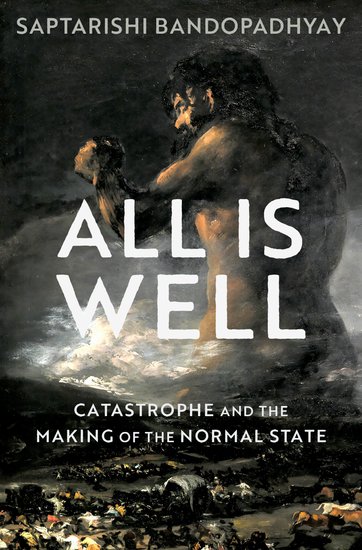
Catastrophe and the Making of the Normal State

Catastrophe and the Making of the Normal State

Disasters are commonly understood as exceptional occurences that destroy human life, property, and resources. But what is the relationship between such occurences and modern states responsible for guarding society against them?
Levertijd: 5 tot 10 werkdagen
Disasters are all around us. In everyday parlance, disasters are understood as exceptional occurrences that destroy human life, property, and resources. For centuries, people have looked to political authorities for protection from disasters and for relief in the aftermath. Yet, the COVID-19 pandemic and an endless torrent of storms, floods, and forest fires have shown that modern states and intergovernmental institutions frequently fail this burden. Worse, world leaders routinely ignore evidence that accelerated climate change is an already-rolling planetary catastrophe. So, what is a "disaster"? Who determines when and why a disaster has occurred or ceased? And what is the relationship between such occurrences and modern states who promise to "manage" them?
In All Is Well, Saptarishi Bandopadhyay argues that there is no such thing as a "disaster" outside of rituals of legal, administrative, and scientific contestation through which such occurrences are morally distinguished from the rhythms of everyday life. Disasters, Bandopadhyay asserts, are artifacts of "normal" rule. They result from the same, mundane strategies of knowledge-making and violence by which authorities, experts, and lay people struggle to develop state-like power, to define and defend the social order.
Challenging traditional narratives, All Is Well looks at "disaster management" as a historical process that produces both catastrophes and political authorities. To do so, Bandopadhyay draws on three case studies: the Marseille plague of 1720, the Lisbon earthquake of 1755, and the Bengal famine of 1770. As far back as the eighteenth century, aspiring rulers understood disasters to be occasions for testing their state-like ambitions as they swapped divine authority for the supremacy of natural rights, Enlightenment ideals, and colonial rule. Bandopadhyay examines these exercises in catastrophe conservation and state formation and shows how the underlying beliefs and resulting insights underwrite sophisticated but deeply inequitable present-day norms and practices of global governance. He concludes that climate change, and the national and international authorities designed to fight it, are products of three centuries of disaster management, and civilizational survival depends on reckoning with this past.